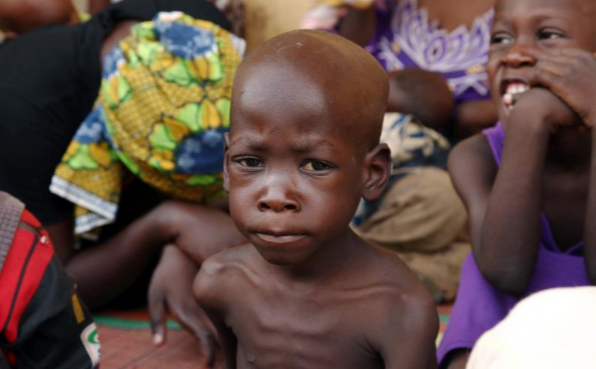Although malnutrition affects brain development, it is “fixable” in the first 1000 days of a child, says a report by a group called Working to Improve Nutrition in Northern Nigeria (WINNN).
Children are said to be malnourished if they have stunted growth, are too thin, underweight, and are deficient in vitamins and/or mineral micro-nutrients.
Malnutrition in children is as a result of dietary inadequacy deficiencies, excesses or imbalances in energy, protein and micro-nutrients, among others.
Severely malnourished children experience slow behavioral development and mental retardation.
According to the report published in Daily Trust, a stunted child has 40 percent less brain mass than a normal child.
WINNN, in partnership with UNICEF, Action Against Hunger and Save the Children International, seeks to help curb the issue of malnutrition in Zamfara, Jigawa, Katsina, Kebbi and Yobe states.
The project was designed to build capacities, implement nutrition interventions and improve political commitment and government funding for nutrition intervention.
Hamisu Lawal, director, primary healthcare in the state, said the intervention has helped reduce cases of acute malnutrition.
“We have people coming from Niger Republic and states like Zamafara to access care. We now screen between 250-300.
“All the personnel around in the health facility should come and support the staff to conduct the program weekly. Definitely we have a very comprehensive voluntarily assistance in terms of malnutrition,” he said.
Nigeria is ranked second behind India in the list of nations with stunted children while 45 percent of children deaths in the country are associated to malnutrition related cases.
Copyright 2025 TheCable. All rights reserved. This material, and other digital content on this website, may not be reproduced, published, broadcast, rewritten or redistributed in whole or in part without prior express written permission from TheCable.
Follow us on twitter @Thecablestyle

